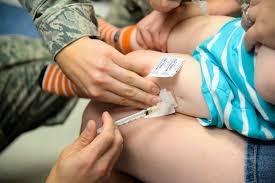The Centers for Disease Control and Prevention (CDC) has issued a clarification of their recommendations regarding MMR (measles, mumps, and rubella) vaccines. They have informed various authorities like the Alabama Department of Public Health in states struggling with measles outbreaks.
The CDC’s clarification describes who needs to be vaccinated and who doesn’t. They also describe who may need more than one vaccination. According to the CDC, most adults who were born in or after 1957 need only one vaccination. Children should receive their first vaccination when they are between 12 and 15 months old, followed by a booster shot when they are between four and six years old. They will thus be protected by the time they start school.
Some adults may need a second round of shots if they fall into certain high-risk groups: international travelers, health-care workers, and students at colleges or post-graduate institutions. They will need two shots separated by at least 28 days. Such adults may forego this second round only if they can prove they have already been vaccinated. Such proof may take the form of a dated document or a laboratory test proving the patient is immune to measles, mumps, and rubella.
Why don’t people who were born before 1957 need MMR vaccinations?
There were a series of measles epidemics around that time, and the vast majority of people who were alive then were exposed to measles. They are thus presumed to be immune. Similarly, most people back then were exposed to rubella and mumps as children and are also presumed to be now immune.
Who else shouldn’t get the MMR vaccine?
Basically, anybody with a major health problem should either not get the vaccine at all or wait until their health has improved. People with compromised immune systems or severe allergic reactions to any of the components in the vaccine, for example, should not get the vaccine. People with tuberculosis should not get the vaccine.
Women of child-bearing age should get the vaccine at least a month before they plan to get pregnant. If they are already pregnant, they should wait until after delivering their child to get vaccinated.
People who have received other vaccines should wait at least four weeks before receiving the MMR vaccine. Receiving two vaccines too close together can impair their effectiveness.



